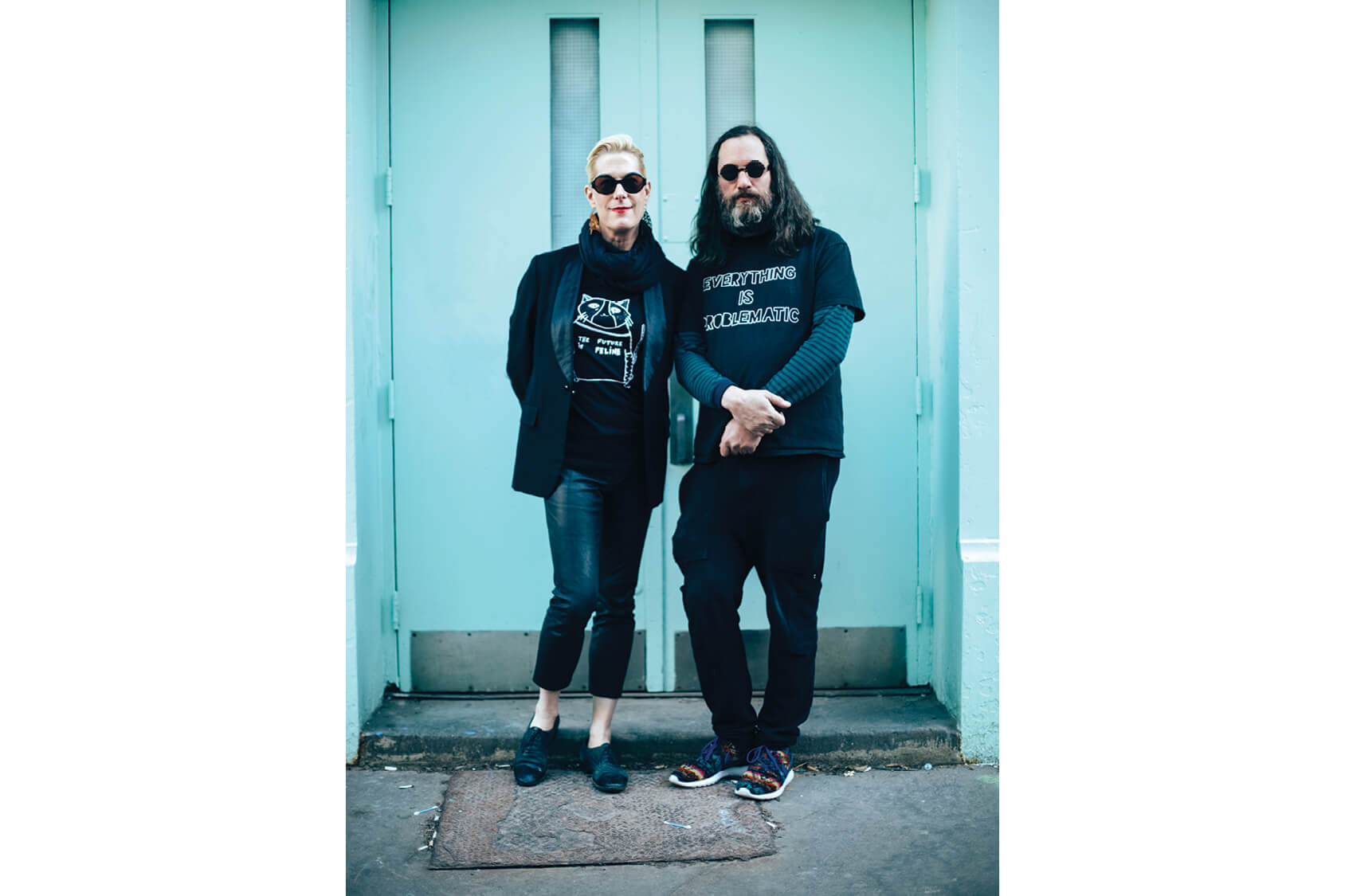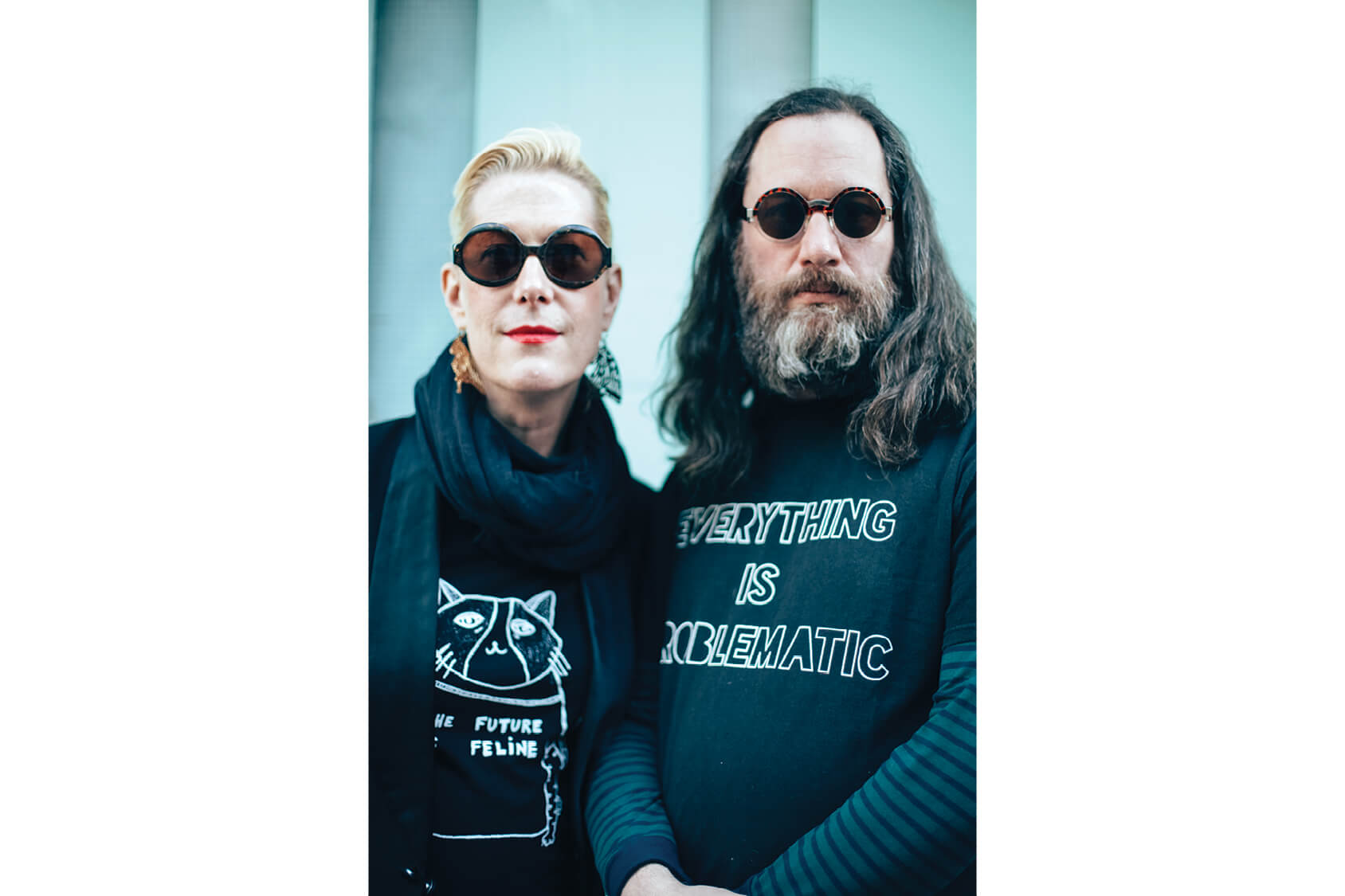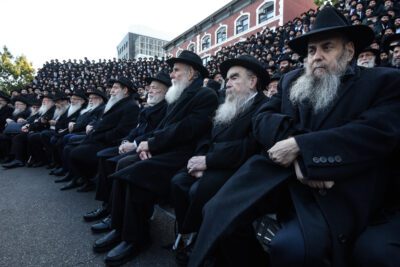“We Can’t Die, Ladies and Gentlemen!”: Kiki and Herb Are Back


On May 17, 2007, the legendary lounge act comprised of Kiki DuRane and her pianist, known only as Herb, gathered at the now-defunct Knitting Factory in Tribeca to celebrate two victories. That week, the duo had earned a Tony nomination for their Broadway debut, Kiki & Herb: Alive on Broadway. “And if that wasn’t a sweet enough delight of a treat,” Kiki said into the microphone, looking out onto a packed house, “the cherry—the icing on my day—was the death of Jerry Falwell.” The crowd erupted in cheers in response to both pieces of news.
And then the typical onstage mania associated with a Kiki and Herb show. While Herb banged frantically on the piano keys, Kiki performed boozy, punk-fueled renditions of songs originally performed by artists as varied as Emmylou Harris and Kate Bush to Suicidal Tendencies and Butt Trumpet—culminating in their tumultuous cover of “Total Eclipse of the Heart.”
In between songs, Kiki erupted into her famous monologues that delved into the pair’s history together, revealing that they were not, in fact, mere septuagenarian cabaret superstars who were as well-versed in the oeuvre of Neutral Milk Hotel and Lou Reed as they were the classic American songbook. Kiki admitted that instead of what their official, if sprawling, biography claimed, their true origin story places them in Nazareth. After drinking milk from a cow present at the birth of Jesus Christ (a cow that, coincidentally, ate the afterbirth), Kiki and Herb became immortal—and thus wandered through time like two rambling, belting, booze-swigging Leonard Zeligs, finding themselves at Jesus’ crucifixion, the fall of Rome, and the rise of Adolf Hitler.
“We can’t die, ladies and gentlemen,” Kiki cried. “God knows we would love to!”
Alas, underneath the sequins and the painted-on age lines streaked across their faces, Kiki and Herb were mere mortals: Justin Vivian Bond and Kenny Mellman, the real-life geniuses behind these over-the-top personas. Less than a year after the Knitting Factory show (which was preserved on DVD), Bond and Mellman ended their collaboration and went separate ways. Kiki and Herb, it seemed, could—and would—die after all.
By the time they played their last show together at Perez Hilton’s thirtieth birthday party in 2008, Bond and Mellman had been working together for nearly twenty years. The pair met in San Francisco in 1988; Bond, an actor and performer, had expressed interest in doing a nightclub act, and a friend had introduced V to Mellman. (Bond, who is transgender, eschews gender-specific pronouns and prefers V over “he” or “she.”) Their first performance was on New Year’s Eve, and it allowed Bond and Mellman to “make the mistakes that everybody makes during their first show,” Bond says, referring to singing classics like “Don’t Rain on My Parade” and “The Man That Got Away.” “It was fun, but not that interesting,” Bond admits.
“We got a standing
ovation. I thought, I never
have to look good
or sound nice again!”
The time and place were a perfect breeding ground for Bond and Mellman to find their musical voice. Their aesthetic was formed by two musical poles. “We came out of a punk rock aesthetic and very into the idea of cabaret being relevant,” Bond explains. “I collected Dinah Washington records, and V was into Julie London,” Mellman continues. “We were going to punk clubs where they were handing out acid at the door. That smooshed together.” Soon Bond and Mellman found the thing that would make them interesting: contextualizing contemporary songs in a cabaret format. With Mellman’s fierce, loud piano playing and Bond’s otherworldly voice, the pair put a spin on the antiquated, genteel notion of cabaret by bringing it to dingy and divey San Francisco punk clubs.
And then there was Kiki DuRane. Bond had started performing as Kiki in the late 80s, finding inspiration from a friend’s mother. “She was a showgirl in the 50s and got pregnant and had a kid,” Bond says. “She terrified me, but she was so amazing. Her physicality and the way she walked, the way she carried herself, her radical politics. She was the spirit of the character.” Kiki and Herb met almost accidentally after the gay pride parade. After marching and performing that afternoon, Bond realized it’d be hard to repeat the performance at a gig that night with Mellman. Kiki, then, came to the rescue. “I said, I can’t sing,” Bond says, “so we’re going to do our material as Kiki — and you’re Herb.” Bond and Mellman showed up before their gig in costume (and in character) and sat—and drank—in the back of the bar, casually interacting with the wait staff and some of the patrons. Then they hit the stage, and Bond interspersed their set with improvised anecdotes about Kiki’s life. “We got a standing ovation,” Bond says. “I thought, I never have to look good or sound nice again!”
Bond moved to New York in 1994, with Mellman following a year later, and they began performing as Kiki and Herb at the Cowgirl Hall of Fame in the West Village. By the mid-90s, the political climate had changed, and the New York crowds were certainly different from those in San Francisco. They were similarly motivated and artistic, and they shared the collective trauma from the Reagan years. But the New York community embraced Kiki and Herb in a different way. For example, they came out in droves, and eventually Bond and Mellman moved to bigger venues like Flamingo East and Fez in the East Village—and started charging for shows.

As their star power grew, so did their opportunities. The early aughts saw Kiki and Herb in a scripted setting at the Cherry Lane Theatre off-Broadway. Then they played a sold-out show at Carnegie Hall (the performance was recorded and released as a live album titled Kiki and Herb Will Die For You). In 2007, they made it to Broadway. The trajectory was impressive—but it brought mixed emotions. On the one hand, Bond admits, it legitimized their aspirations as queer performers who were on the fringes of mainstream theater. “If you’re a couple of faggots playing in a downtown club, and one of them is in quote-unquote ‘drag,’ it’s easy for people to dismiss you,” Bond says. “I think to a certain extent that really pissed us off and was a driving factor.” But it was also a massive shift to perform for such a large house. “If Kiki and Herb had been able to be at the Fez for the rest of our lives, and we could be creatively fulfilled and happy, that would have been the greatest possible scenario,” Mellman says. “It needs that sense of community that comes from a room that holds less than 200 people. You don’t look a gift horse in the mouth—you don’t turn down Broadway. But it became a job, and it was a job where we were emotionally wrecking ourselves every night.”
The characters took a toll on Bond and Mellman. They were totally committed to the roles they were playing—so much so that when a girlfriend of Bond’s asked Kiki for a tampon, Kiki dug into her purse and retrieved one. “She was like, ‘Wait a minute…’” Bond laughs. “I said, ‘It’s from when I still menstruated. Just go take care of yourself, sweetheart.’” Kiki’s meandering biography—which insisted she palled around with the likes of Jesus, Grace Kelly, and even Hitler—felt honest and true to both of them. (“If you can believe in Jesus, why can’t you believe Kiki and Herb were there when he was born?” Bond asks.) But many people interpreted those characters to be versions of Bond and Mellman themselves. “I definitely spent a lot of time feeling like a disappointment to people because I’m not that character,” Bond says. “By the end, I was checking out, doing a lot of drinking and a lot of drugs.”
When the pair retired Kiki and Herb in 2008, one would think it left a massive hole in the downtown performance scene. But the fact is that Bond and Mellman essentially created a new genre within performance art and cabaret—an amalgamation that is replicated by a slew of artists currently working in the space that Bond and Mellman ushered in over a decade ago. They didn’t stop working, either; Bond regularly performs at Joe’s Pub, and Mellman co-created the long-running show Our Hit Parade there that provided a launching pad for downtown cabaret’s contemporary stars. (Mellman is also a member of the Kathleen Hanna-fronted band, The Julie Ruin.) They reunited somewhat unexpectedly in 2013, and Mellman joined Bond onstage at Bond’s “tranniversary” show at Le Poisson Rouge in 2014 to celebrate V’s twenty years in New York. The pair essentially performed Kiki and Herb out of costume, but it still brought forth an incredible emotional response from the audience—proving that the power behind Kiki and Herb is not the costumes or the notion that Bond was performing in drag, but the actual actors themselves.
While their talents as performers are outstanding, one can’t ignore their musical prowess. Their covers reflect a wide range of influences, from laughingly niche (the Singing Nun) to Top 40 (Britney Spears). The outstanding “Revolution Medley” from their live album is a gut-punching mash-up of Gil Scott Heron’s “The Revolution Will Not Be Televised,” Method Man’s “Release Yo’ Delf,” Eminem’s “Lose Yourself,” and Talking Heads’ “Once in a Lifetime.” But there are also beautiful, bittersweet ballads that aren’t overshadowed by the duo’s performative nature. Bond’s voice, which emits growls and clucks that match Kiki’s anger and unpredictability, also reveals considerable training. Kiki (as well as Bond) exhibits moments of sweet tenderness, while Herb/Mellman’s piano playing can be both thunderous and delicate within the confines of a single tune.
“It became a job, and
it was a job where
we were emotionally wrecking
ourselves every night.”
With our current political climate reaching heights of insanity, Bond and Mellman’s resurrection of Kiki and Herb feels like a timely dose of artistic therapy. Their new show, Kiki and Herb: Seeking Asylum!, plays twenty performances at Joe’s Pub in April and May, and the press notes pepper new details into their biographies. (“Kiki and Herb decided to take a break from the grind of live performance and touring in order to explore more mainstream opportunities in film, television, and journalism which ultimately culminated in a brief stint as Middle East correspondents for Al Jazeera.”) The community of Kiki and Herb fans are grateful (the shows sold out instantly), and there’s a sense that we need Kiki and Herb more than ever—not just to legitimize and acknowledge our anger and frustrations, but also to continue carrying the torch of queer sensibility. “Kiki loves you, Kiki needs you,” Bond sings at the closing of their cover of “Total Eclipse of the Heart.” “Kiki would die for you.” Let’s hope that Kiki and Herb stick around a little longer before fulfilling that promise.
Photos by Nicole Fara Silver
You might also like 




















